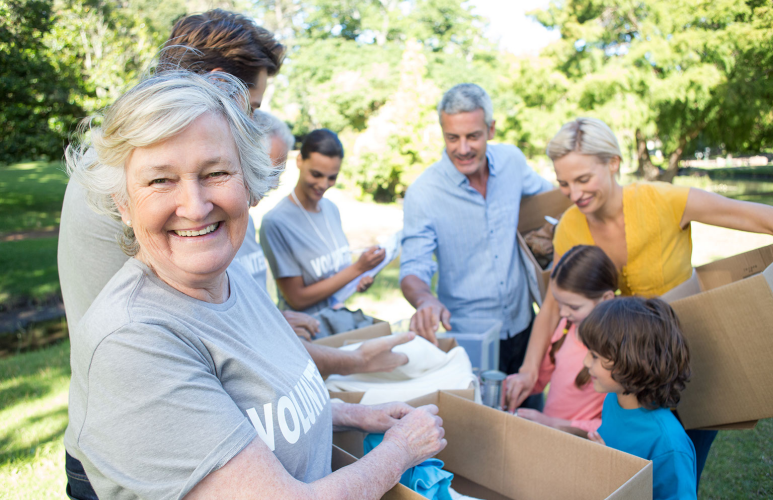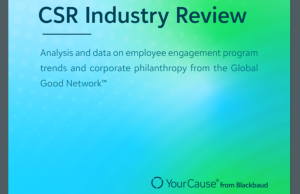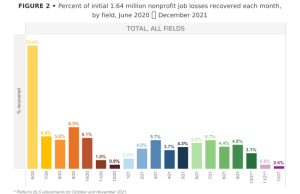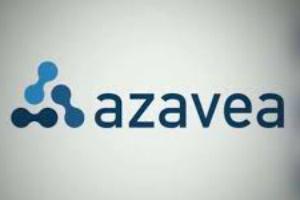People are primed to offer their time and sweat to nonprofits once the COVID-19 pandemic is over, according to Civic Life Today, a new study from Points of Light, an Atlanta-based organization that inspires, equips and mobilizes people to volunteer for a variety of civic activities. How nonprofits choose to approach these individuals will determine success in marshaling their energy.
The good news is there is a lot of new energy to marshal. Before the pandemic, regularly voting in elections topped a list of engagement activities at 72 percent. The next-closest form of civic engagement was donating to a nonprofit, with 54 percent of respondents reported doing so. Another 43 percent signed a petition in the past year, and 41 percent weighed a company’s social positions when deciding whether to make a purchase. Just more than one-third – 36 percent, said they had participated in volunteer activities.
The pandemic has caused people to examine their engagement priorities. Voting still tops the list, with 78 percent indicating it will be more important than ever after the pandemic is resolved. But three-quarters also cited donating to nonprofits, and a like percentage – 73 percent – mentioned volunteering. Six in 10 said contacting government leaders or advocacy groups to air their concerns had risen in importance.
Nonprofits making requests of potential donors and volunteers will find a receptive audience, provided organizations’ messaging reflects expressed sentiment. More than eight in 10 respondents – 82 percent – agree that “once the pandemic is over we all must get involved to rebuild our communities and country.” This trend is already manifesting, with 85 percent of nonprofit organizations reporting increased volunteerism requests, more than double pre-pandemic levels, according to the study.
When the pandemic wanes and life begins to return to a semblance of normal, nonprofits will have to balance their impulse to raise funds – whether for their community activities or just to keep the lights on – with the renewed instinct toward volunteerism. Knowing what motivates donors will offer key insight into approaching the new civic spirit.
Doing good for others is only got to be part of the equation. According to the report’s authors, “The COVID-19 pandemic has led to feelings of isolation and helplessness. It has left people desperate to find new ways to connect with others and uplift their mood. We have long known the positive impact volunteerism and civic engagement have on an individual’s mental health and well-being and our research confirms health benefits are leading motivators for being civically engaged.”
That’s not the only potential silver lining the pandemic’s dark cloud may yield: younger citizens are looking for ways to become more civically active, meaning organizations have the opportunity to train and retain long-term enthusiasts. More than half – 53 percent – of Generation Z individuals – those born between roughly 2001 and 2018, although some sources hold this cohort includes anyone born after 1996 – along with nearly half of Gen Y and Gen X say they will get more involved when the pandemic abates. Their participation, the report notes, won’t be limited to nonprofits: businesses that have social responsibility arms will have an opportunity to harness their enthusiasm.
Organizations that recognize the role social impacts play on volunteerism will be better positioned to tap into the post-pandemic impulses. Nearly two-thirds of respondents said being invited to volunteer by a friend spurred them to action, while 56 percent indicated volunteering with family was a prime motivator. Just over half – 52 percent – believe volunteering will give them physical or mental health benefits, while 41 percent were spurred by apps that track their mental health, stress or feelings of wellbeing (and offer suggestions for improvement) they have been using during the pandemic.
As the report notes, “Tapping into the happiness engagement brings people, we are reminded that getting involved in civic life will and meaning, connection, and joy to their lives in a time when we need it most.”
The causes respondents are most interested in supporting are those directly impacted by COVID-19, such as child and youth safety, food insecurity, healthcare and poverty, meaning that arts and other nonprofits viewed as tangential to post-pandemic needs will have to stress their relevance to this audience.
Points of Light conducted its research through Hart Research Associates. Results are based off 1,441 online surveys completed by a nationwide sample of adults in mid-May. A full copy of the study is available here: https://www.pointsoflight.org/wp-content/uploads/2020/09/Points-of-Light-Civic-Engagement-Research-Brief.pdf











